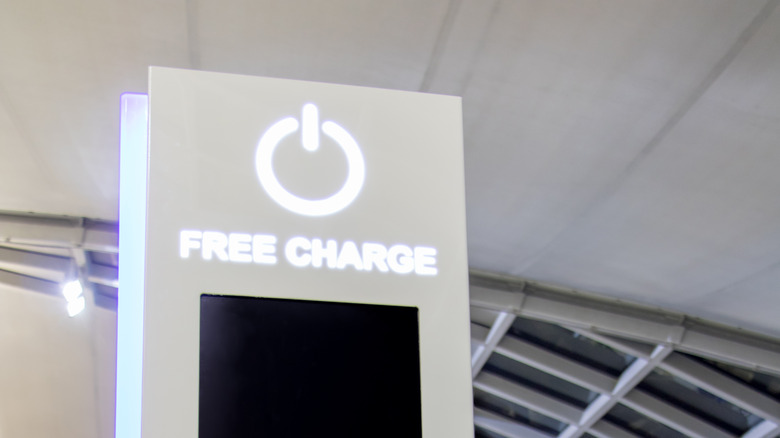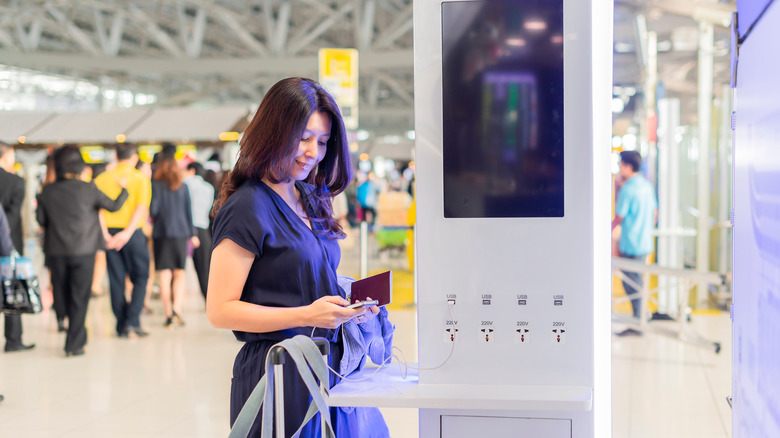Why You Shouldn't Use Free Charging Stations, According To The FBI
USB functionality is one of those modern creature comforts that millions of users couldn't live without. It's quite remarkable just how widespread it has become. Everything from conventional keyboards and mice to heaters and zany desk toys seems to have USB functionality.
British band Keane made Guinness World Records for the first ever single released on a USB stick, 2006's "Nothing In My Way." Almost two decades later, it couldn't be plainer that the technology is here to stay; the sheer ubiquity of USB-C is proof enough of that.
Thanks to the plug-in-and-go versatility and wide compatibility of the format, it's provided in various public places. The convenience, however, comes with certain safety risks for prospective users. It's almost always best, it seems, to ensure your devices are readily charged or have your own chargers to use while on the go. Here's why the FBI strongly recommends avoiding such USB charging stations.
Public USB charging stations: A safety risk
It's become second nature for us to keep necessary devices topped up prior to leaving for a commute or other journey. Mistakes are easily made, though, and when desperate for juice, it's just logical to hope for a nearby public charging station. As the FBI reported in April 2023, though, personal chargers from home are a far safer option.
FBI Denver stated on Twitter, "Avoid using free charging stations in airports, hotels or shopping centers. Bad actors have figured out ways to use public USB ports to introduce malware and monitoring software onto devices ... use an electrical outlet instead."
With regular outlets, Check Point lead security engineer Muhammad Yahya Patel told Sky News (via Yahoo), it would be "extremely unlikely and difficult" to compromise devices in such a way. In contrast, unfortunately, USB charging points are particularly vulnerable to such attacks. According to Patel, malicious ways of exploiting strangers' devices using such devices aren't often detected.
The dangers of juice jacking
It's become rather standard practice to essentially carry our lives around with us on our smartphones, tablets, and similar devices. From photographs to passwords and bank details, our most private information is at stake. Cybersecurity is an essential concern, especially with the practice of juice jacking.
Such charging ports can access data on a device as well as charge it. This can make them a convenient and conniving way for criminals to use them to attack a charging station (and therefore a device accessing it). Just as ATMs can be fitted with malicious software to track inputted PINs, so can such charging points be manipulated to introduce harmful malware –which can sometimes prove difficult to remove– to a device.
It's unfortunate that people in their moment of low-battery need, should have to be so wary of such threats. Nonetheless, forewarned is forearmed. As cybersecurity technology improves, so do the scams, gambits and plots of those who seek to undo it.


